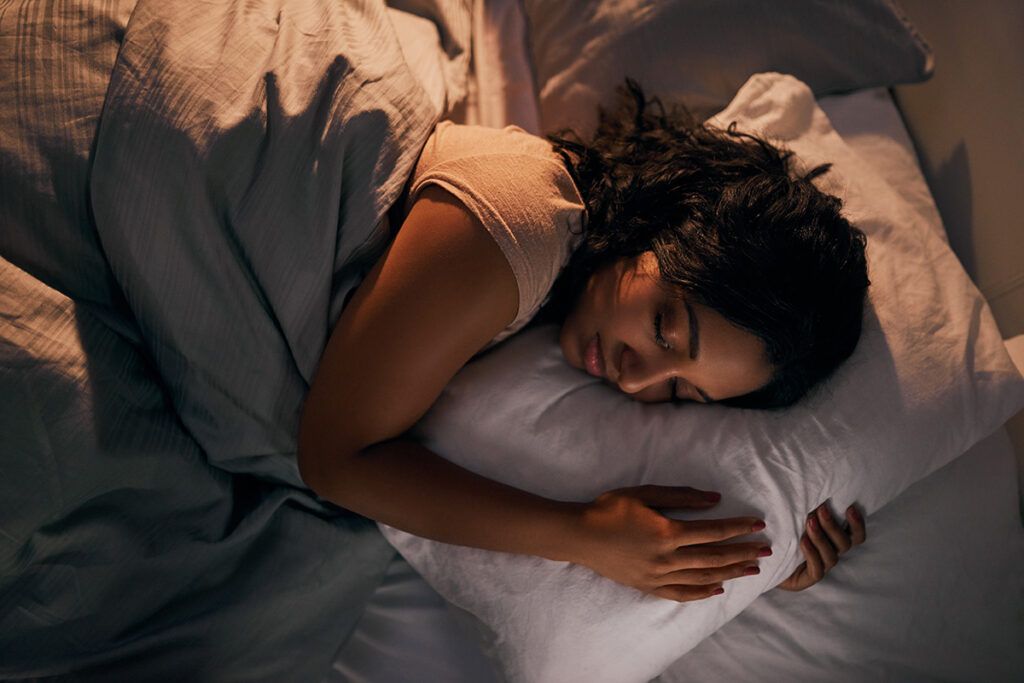Bipolar disorder is a mental health condition characterized by changes in mood and energy levels over a period of days, weeks, or months.
In some cases, if you live with bipolar disorder, you may notice periods of euphoria and high mood (mania) and periods of low mood and fatigue (depression). These symptoms may change in intensity and frequency depending on the type of bipolar disorder you have.
The Diagnostic and Statistical Manual of Mental Disorders, 5th edition, text revision (DSM-5-TR) lists four main types of bipolar disorder:
- Bipolar I disorder: This type includes one or more episodes of mania that last at least 7 days and may involve symptoms of psychosis. Periods of depression are possible but not required to receive a diagnosis.
- Bipolar II disorder: This type involves one or more periods of depression that last at least 2 weeks with one or more episodes of hypomania (a less severe form of mania) that last at least 4 days.
- Cyclothymic disorder: This includes episodes of hypomania and low mood for at least 2 years that are not severe enough to be classified as bipolar I or bipolar II disorders.
- Unspecified bipolar disorder: This includes symptoms of bipolar disorder but not intense or frequent enough to meet the criteria for the other diagnoses.
Each type of bipolar disorder may interfere with the quality of your sleep. This article discusses sleep as a symptom of bipolar disorder as well as management options.
Is sleep disturbance a formal symptom of bipolar disorder?

Sleep disturbance is a formal symptom of bipolar disorder. The disturbance may vary depending on the episode you are experiencing and the treatment you are receiving.
Not everyone with bipolar disorder experiences sleep disturbances, though.
Bipolar disorder may also involve nightmares, sleep talking, sleepwalking, and sleep apnea (when breathing stops and starts while sleeping).
Sleep disturbances during episodes of mania
You may feel a reduced need for sleep during episodes of mania. Your body still needs to rest and sleep, but your mind tells you that is not the case. This is because mania typically makes you feel energetic and excited.
Research suggests that 69–99% of people with bipolar disorder have a reduced need for sleep during an episode of mania. This may involve difficulty falling or staying asleep or a lack of interest in doing so.
Mania may also involve racing thoughts and feeling able to do lots of things at once without getting tired.
If you have psychosis during mania, you may also feel you have superpowers and experience hallucinations.
Sleep disturbances during episodes of depression
During depressive episodes, you may have trouble falling asleep, find yourself waking up too early or often, or sleeping too much.
Episodes of depression in bipolar disorder may involve:
- Hypersomnia: This is feeling very tired to the point of falling asleep during regular activities. Research suggests that 38–78% of people with bipolar disorder experience hypersomnia.
- Insomnia: This involves persistent problems falling asleep or staying asleep.
These sleep disturbances may not always be consequent with your energy levels. For example, you may feel tired and unmotivated to do regular activities, but you may still have difficulty falling asleep.
How long can someone go without sleeping?
How long someone can go without sleeping may depend on age and physical health. But in general, most adults need 7–9 hours of sleep per day to have optimal cognitive and physical functioning.
You may feel you need less sleep during an episode of mania, but research also suggests that not sleeping enough may trigger a manic or hypomanic episode.
Not getting enough sleep may also make an episode of mania worse or allow it to last longer.
Additionally, sleep deprivation may also lead to:
- increased chance of accidents
- symptoms of psychosis, like hallucinations
- cognitive difficulties, such as poor decision-making, memory challenges, or not being able to focus
- challenged ability to manage infections
- reduced energy levels
- increased chance of suicidal thoughts or suicide attempts
If you are not getting enough or good quality sleep, it is highly advisable to work with a healthcare professional.
How to sleep better when you have bipolar disorder
If you have bipolar disorder, a mental health professional may likely recommend medications such as mood stabilizers or antipsychotics to manage your symptoms. Some of these medications may help to improve your sleep. These include:
- lithium (Lithobid)
- divalproex (Depakote)
- lamotrigine (Lamictal)
- valproic acid (Depakene)
- carbamazepine (Tegretol, Equetro)
Psychotherapy may also help you manage your symptoms and improve your mood.
Making small changes to your lifestyle may help you to sleep better when you have bipolar disorder. Helpful lifestyle changes may include:
- building routines for regular mealtimes and a regular sleeping schedule
- aiming to sleep and wake up at around the same time every day
- engaging in regular physical activity and exercise
- eating a nutrient-dense diet
Other helpful tips involve:
- taking time to wind down and relax before going to sleep
- reducing alcohol and caffeine consumption
- sleeping in a cool and dark room without any distractions (such as TVs or laptops)
- attending talk therapy sessions to manage thoughts and feelings
If you need help covering the cost of medications, the free Optum Perks Discount Card could help you save up to 80% on prescription drugs. Follow the links on drug names for savings on that medication, or search for a specific drug here.
